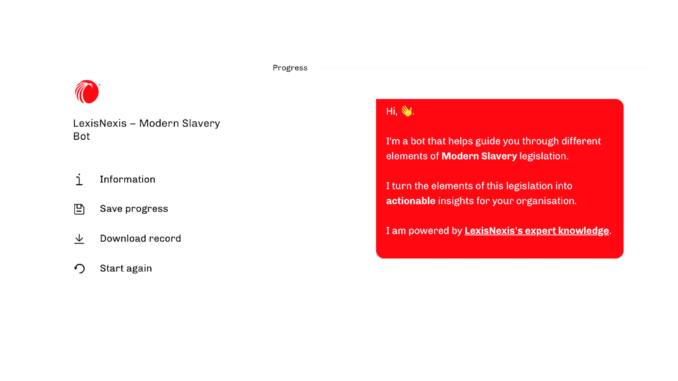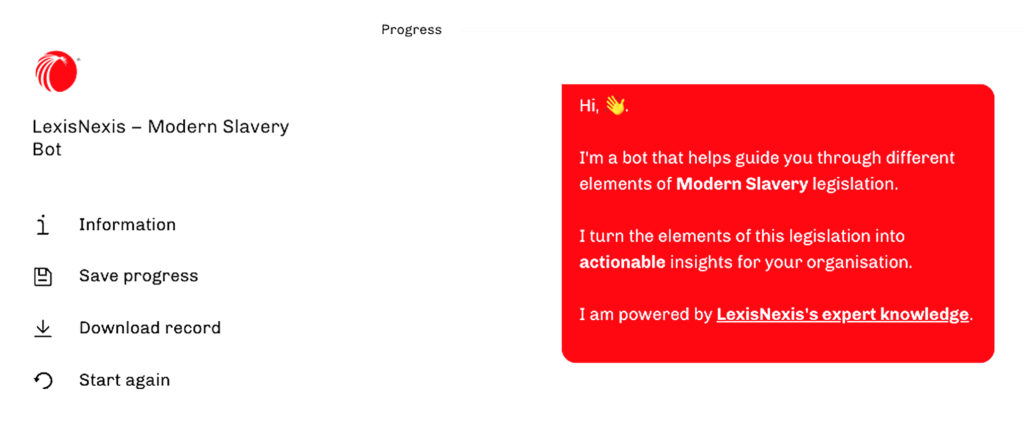
Josef, the no-code platform, is partnering with LexisNexis Pacific, primarily to provide its bot building capability to produce guided Q&A workflows to improve the customer experience. Artificial Lawyer caught up with co-founder, Sam Flynn, to hear some more.
- What will this look like? Can you please give some concrete examples of how Josef will be used? ‘LexisNexis’s content will be transformed into dynamic automated user experiences, using Josef bots. We’re starting with LexisNexis Regulatory Compliance content. LexisNexis is using Josef to create tools for users that can do things like answering common regulatory questions in relation to schemes like Modern Slavery and Notifiable Data Breaches, generating materials to ensure compliance with such a regulatory scheme, or collating information and data to make compliance easier (see image below).’

- Why LexisNexis? ‘LexisNexis is a digital pioneer. They were one of the first major players to make legal information more accessible online. And, as a powerhouse of legal knowledge and information today, this was the perfect opportunity to bring together Josef’s game-changing no-code technology with the expert content that legal professionals need at their fingertips.’
- Is this just Asia-Pacific? ‘The partnership is global, although the initial stage is focused on the Asia-Pacific.’
LexisNexis Pacific, Managing Director, Greg Dickason, added in a statement: ‘LexisNexis has continually been innovating in this space for over 50 years, adopting and pioneering new technology ensuring that our content is optimised and highly accessible. Our partnership with Josef makes sense to us as we work with emerging no-code solution providers.
‘We believe in experimenting and learning with customers to ensure we deliver the best solutions possible. Working with innovative providers like Josef and others helps deliver our market leading content through new methods.’
The move comes after several expansionary steps by Australia-based Josef, which has now also opened bases in the US and UK, as the battle for a share of the growing no-code market in the legal sector continues.